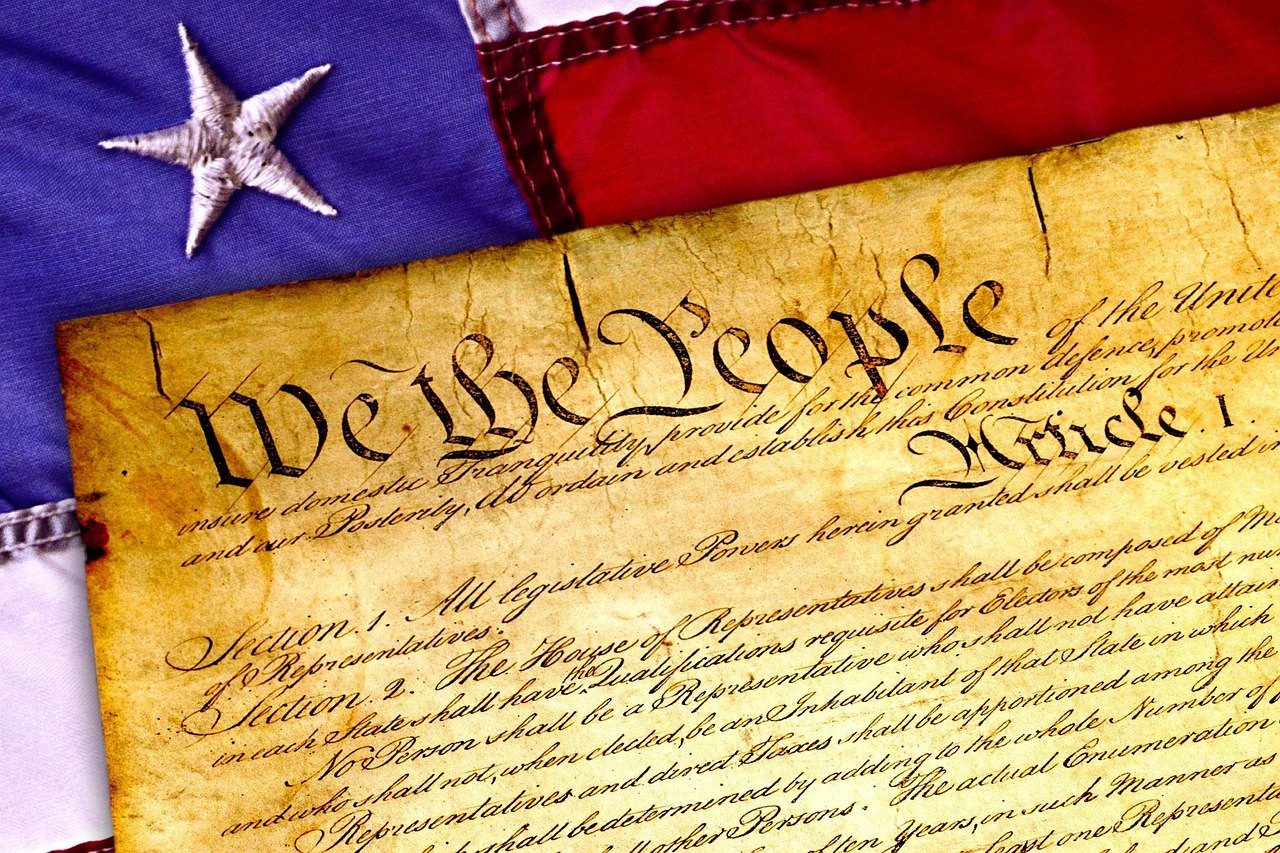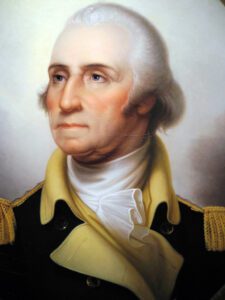
The Conway Cabal was a 1777 clandestine military-political plot to relieve General George Washington of his position of command-in-Chief of the American Continental forces. It ended up accomplishing nothing and historian’s opinions of the importance of the plot range from nonevent to dire. My opinion is that the plot was loosely organized but was a true conspiracy. It was an exercise in professional and personal jealously and inflated self-importance that nearly got out of hand. If it had succeeded our Revolution may have failed. It also revealed that George Washington could be avenging and very human in reaction to a personal threat. He was not always calm, reasonable, and stoic as we usually view him.
The Oxford Dictionary defines cabal as “a secret political clique or faction, a junta.” The man whose name was given to this incident was Thomas Conway. He was from an Irish Catholic family that fled to France to escape English religious oppression when he was a child. He served for years in the French military and eventually served under the command of Prussian Frederick the Great. He migrated to America to “increase my fortune.”

Conway was 42 years old when he first met George Washington, and he made a good first impression. Washington found him to be a “man of candor…infinitely better qualified to serve us than many who have been promoted…” The Marquis de Lafayette, a Washington aide, praised Conway lavishly. Congress awarded Conway the rank of brigadier general in the Continental Army on 13 May 1777.
By the fall of 1777 Washington had suffered a series of military setbacks. The British had captured the capital city, Philadelphia forcing Congress to relocate to York, Pennsylvania. He had also been defeated at Brandywine and Germantown. These losses were causing some in the army and many in Congress to question Washington’s leadership.
Conway reportedly fought well at Brandywine and Germantown. Dr. Benjamin Rush, army surgeon, said that Conway was “the idol of the whole army.” However, according to Washington aide, Lieutenant Colonel John Laurens, Washington was not impressed with Conway’s performance at Germantown. Washington had considered court martialing him because he was “a considerable time separated from his brigade.” In addition, Conway lectured others on what Frederick the Great would have done had he been in the “untutored American’s” place. He was arrogant with an I-told-you-so attitude and appearance when dealing with others.
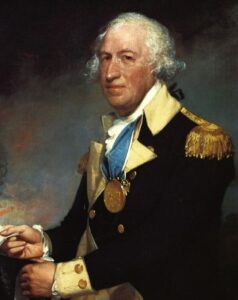
The Washington-Conway relationship was festering under the surface like an untreated wound when another general, Horatio Gates, was added to the mix. Major General Gates was on top of the world because in October 1777 his command had defeated and captured British General John Burgoyne’s entire army at Saratoga. This was the greatest victory by American arms up to that time, and the victory helped encourage France to ally with America. Gates had previously coveted Washington’s position and had in fact lobbied Congress for the command.
Gates and Washington were well acquainted. Gates was five years older than Washington and had more military experience having been a British officer before migrating from England only four years before the Revolution. Both had served during the French and Indian War under General Edward Braddock. They had been with Braddock when he was killed at Fort Duquesne in 1755. Gates was wounded and Washington was nearly killed in that battle.
Gates’ victory magnified Washington’s failures and some army officers and members of Congress were secretly intensifying their questioning of Washington’s ability to command. When Washington accepted his commission from Congress in 1775, he accepted with these modest words: with “a conviction of my own incapacity and inexperience.” After his early defeats he pointed out that he had never “assumed the character of a military genius.” Among those that wholeheartedly agreed with Washington’s modest statements were John Adams, Samuel Adams, and James Lovell of Massachusetts; Richard Henry Lee of Virginia; Dr. Benjamin Rush, surgeon of the army; and particularly Major General Thomas Mifflin, the disgruntled former Washington aide and Quartermaster of the Continental Army. Rush and Lovell wrote gushing letters to Gates stating their wish that he was in command of the Army.
After Saratoga Gates was flooded with congratulatory letters including ones from Washington and Lafayette. However, Washington knew that Gates was taking more credit than he deserved. Gates had been in command less than eight weeks before the Burgoyne surrender. General Philip Schuyler had developed most of the battle plan, and all the fighting had been done by Benedict Arnold and Daniel Morgan. This information was minimized in Gates’ after-action reports, which emphasized and exaggerated his own performance.
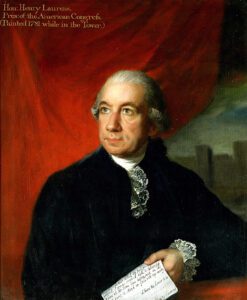
Secretly criticizing Washington and his leadership while praising a Washington subordinate was a recipe for weakening military unity, which would eventually degrade combat effectiveness. In this case the situation soon became known to Washington in an indirect way. The president of the Congress, Henry Laurens, wrote his son John about the intrigues. However, John was an aide on Washington’s staff and being a loyal subordinate, passed the information to his commander.
Henry Laurens had indicated that one unnamed individual whose “duplicity and criminal partialities” had “laid the foundation of our present deplorable state” was someone Washington trusted. Washington was shocked and angered, and understandably became a little paranoid wondering about the identity of false friends. Soon afterward an anonymous letter actually calling for Washington to be replaced was passed to the general who recognized the handwriting of Dr. Benjamin Rush.
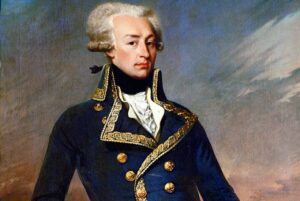
Lafayette who was becoming very close to General Washington tried to console him by calling his detractors “stupid men” who knew nothing about war. He made his allegiance to Washington clear writing he would sustain it “by my sword.” Washington was touched by Lafayette’s words and wrote back “It is much to be lamented that things are not now as they formerly were, but we must not, in so great a contest, expect to meet with nothing but Sun shine.”
Philosophical words soon ended. The plot erupted when General Gates’ aide Brigadier General James Wilkinson bragged to an aide of Major General William Alexander, Lord Stirling, about a letter Gates had received from General Conway. Stirling was irate over remarks Conway had made to Congress accusing him of drunken ineptitude, so he passed the information to Washington as an example of “wicked duplicity of conduct.”
The very next day Conway received a heated and direct letter from Washington: “Sir: A letter which I receivd last Night, contained the following paragraph. In a letter from Genl. Conway to Genl. Gates he says, ‘Heaven has been determined to save your Country; or a weak General and bad councellors would have ruind it.’ I am Sir Yr. Hble Servt.”
Conway’s replies were models of denial, why me? and egotism. First, he admitted he had made some critical remarks about the army but denied using the expression “weak general.” He said he was willing to have Washington see the original letter and then kissed up to Washington by praising him. Even then he could not resist stating that Washington had been influenced by men “not equal to you.” Conway whined that others could express their opinions, but not him, which was “odious and tyrannical,” but that Washington was probably “innocent” of such thoughts. He ended with an unbelievable insult to a superior officer. He referred to himself as a veteran sailor of thirty years and Washington as a new admiral; “An old sailor knows more of a ship than admirals who have never been to sea.”
Conway than escalated the dispute, which Washington wanted to remain private, by offering his resignation to Congress and referring to his dispute with Washington. General Washington responded with “I shall not object to your departure, since it is your inclination.” He obviously agreed with Conway’s statement that he could serve “more effectively in another part of the world.”
Congress in an epic example of stupidity and politics, did not accept Conway’s resignation, but promoted him to major general. They then appointed him to be Washington’s new inspector general. They also set up a Board of War to oversee Washington with Horatio Gates in charge. Obviously, Washington’s enemies in Congress wanted to put him in his place hoping he would resign. They underestimated General Washington because he did not take it laying down.
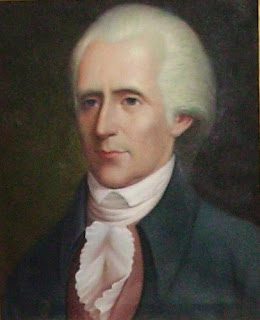
Washington responded to the news of Conway’s promotion by firing a broadside at Richard Henry Lee. He called the actions by Congress “as unfortunate a measure as was ever adopted” for the morale of his officers. Conway’s “importance in this army exists more in his imagination than in reality: For it is a maxim with him, to leave no service of his own untold.” He added a veiled threat to resign stating: “I have undergone more than most Men are aware of, to harmonize so many discordant parts; but it will be impossible for me to be of any further service, if such insuperable difficulties are thrown in my way.”
Lee responded with pablum admitting that the promotion might not have been a good idea, but that it might not even happen. This was a dodge of all the issues by Lee because Conway soon appeared at Washington’s Valley Forge Headquarters as inspector general. Conway claimed he never asked for the position and if it displeased the general, “I am very ready to return to France where I have pressing business.” Washington wrote a pro forma welcome to Conway, but Conway complained to Congress about “coldness” like he had never before experienced. Washington responded to Congress that he could not show friendship to a man “I deem my enemy.”
Washington next wrote to the president of Congress that “a malignant faction had been for some time forming to my prejudice…” He believed he could not adequately defend himself without revealing military secrets and at this lowest point in his career could offer nothing but good intentions. He stated that he had always tried to do his best but had “often” made mistakes. Aide Lieutenant Colonel Tench Tilghman noted, “I have never seen any stroke of ill fortune affect the General in the manner that this dirty underhand dealing has done.”
Thomas Mifflin learned about the weak general reference and warned Gates that Washington had an extract of the Conway letter. He also expressed his agreement with Conway. Gates realized he was in trouble and wrote Washington to defend himself. His letter was quite unbelievable. He told Washington he was shocked because his private letters had been stolen by an unknown person, and asked Washington to help him identify the thief he called “the wretch.” Washington noted the plural term “letters” which suggested a relationship between Gates and Conway and wondered what else had been going on. Gates obviously made no apology and said he would also ask Congress to help identify the thief. Gates had been caught with his hand in the cookie jar and was attempting to confuse the facts.
The Gates letter only made Washington more angry. He and Gates certainly never were close because Gates had the nasty habit of sending after-action reports to Congress bypassing his commander. Washington responded to Gates in a series of letters that coldly reflected his rage over the situation. He first said he regretted that Gates had made it necessary to involve Congress. He identified “the wretch” as Gates’ own aide, Wilkinson who “fell in with Lord Stirling.” He repeated verbatim the weak general passage for Gates and revealed he had kept the letter secret from his staff except for Lafayette. Washington then engaged in some subterfuge of his own by claiming he had assumed Gates had ordered Wilkinson to make the letter known to him to warn him about a secret enemy.
Gates claimed the letter was a “wicked forgery” and the original was “harmless.” Gates praised Conway as “a firm and constant friend of America.” Washington countered that he could not reconcile Gates’ letters and even parts of the same letter with each other. He further asserted that Gates should produce the original letter to remove any doubts about its content. He then ridiculed the “friend of America” statement by noting that the country had not fully benefited from Conway’s experience because of his vanity, meanness, and criticism of others.
Now the situation was approaching resolution. Gates wrote Washington falsely denying he had any connection with Conway and making a guarded and toady apology. He implored Washington to not “spend another moment upon this subject.” Washington responded that he accepted the apology and was willing to close the conflict.
Congress contained many Washington detractors, and they had relished the conflict within Washington’s ranks. However, most military officers were very loyal to Washington. Nine generals officially protested Conway’s promotion and 47 colonels protested Wilkinson’s promotion over them. The continental officers were already furious because Congress was balking on their promise of half-pay for life for them.
Encouraged by Washington, his military supporters were livid about what had happened and reacted with rage. Colonel Daniel Morgan physically challenged Richard Peters, secretary of the Board of War, who whined about the confrontation. An aide to Major General Nathanael Greene suggested “a few Ozs. Of Gun-powder diffused thro proper channels will answer a good purpose.” John Laurens suggested Washington duel Conway. He believed Conway would not have dared oppose Washington if he had believed Washington would resort to physical retaliation.
Washington was said to be amused that Thomas Mifflin was resorting to “quick steps” to avoid General John Cadwalder, whose Welsh blood was boiling. Mifflin publicly claimed Washington was the best friend he ever had which was met with “hoots.”
Wilkinson tried to point the finger at another aide, but after Washington showed Wilkinson portions of Gates’ letters that demeaned him, Wilkinson turned on Gates. He said he would assert his honor “at the point of my sword.” A duel with Gates was arranged, but at the dueling ground Gates asked for a private conversation with Wilkinson. Gates burst into tears during the meeting and Wilkinson relented.

General Conway was not so fortunate. He and General Cadwalder met on the field of honor and Conway was wounded by a ball in the jaw that exited from the back of his neck. Cadwalder proudly stated that “I have stopped the damned rascals lying tongue at any rate.”
Conway assumed his wound was fatal and wrote a note to Washington: “My career will soon be over…Therefore, justice and truth prompt me to declare my last sentiments: You are in my eyes the great and good man. May you long enjoy the love, veneration, and esteem of these States whose liberties you have asserted by your virtues.” Washington did not respond. Conway recovered from his wound and lived a long active life in France.
Historians have argued about the Conway Cabal ever since it happened. There are as many opinions about how serious it was as there are historians. Some historians, like most of us, believe what agrees with their own opinions and prejudices and cherry pick the facts. That is particularly true with incidents like the Conway Cabal where it is necessary to rely on the participant’s words because there are few concrete facts or results. Often you are relying on those trying to make themselves look good and/or covering their tracks.
When the incident ended, Washington claimed he did not know if any in Congress were involved and that he had been assured that none were involved. In later life, however, Washington wrote: “The attempt was made by a party in Congress to supplant me.” Also, about a month after he and Gates buried the hatchet, Washington wrote Patrick Henry indicating that he had “undeniable facts” that three men outside Congress were guilty: Generals Gates, Mifflin, and Conway. Lafayette in his memoirs accused the two Lees of Virginia, the two Adams of Massachusetts and General Mifflin. He dismissed Conway as “a lost Child.”
Like many others I believe that Richard Henry Lee was involved although I have no concrete evidence. However, his lukewarm and condescending reply to Washington’s letter makes me suspect him. Lee was a fellow Virginian so I would expect him to be much more supportive. Also, Lee’s circle of close friends included most of the anti-Washington politicians, and other military officers who may have secretly coveted Washington’s position and been actively lobbying for it.
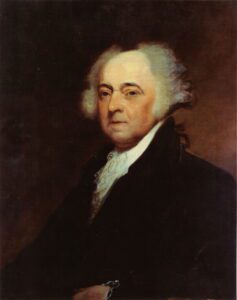
I do feel strongly that John Adams was involved. From what I can determine John Adams did not like most southerners and had little respect for the military. Well before the cabal, Adams had written to his wife the following: “I am wearied to Death with the Wrangles between military officers, high and low. They Quarrell like Cats and Dogs. They worry one another like Mastiffs. Scrambling for Rank and Pay like Apes for Nutts.”
John Adams was also a close friend of Dr. Rush and responded to Rush’s letter with the following statement: “I am sick of Fabian systems in all quarters.” Fabian is not a common term today but is defined as: cautious and dilatory. Adams was referring to what he viewed as Washington’s tactics. An example of a politician speaking of something that he knows nothing about.
Adams had nominated Washington for command of the army, and Washington had been the favorite of most delegates. I believe Adams made a political decision to go with the majority but was really against Washington and was actively looking for a way to replace him. John Adams was one of our greatest patriots, but he was also extremely ambitious and often caustic. Politics was a dirty business even then. A nation was being birthed by very strong, competitive, and ambitious men. If you study the first 50 years of our national politics, you will find not much has changed.
No matter the identity of all the plotters involved in the cabal, it seems clear that it had the potential to replace Washington. That would have greatly changed the history of America. I believe without Washington as commander of the Continental forces, the Revolutionary War would have been lost. Even if the War were won, Washington would not have been our first president. He held the army together and led it to victory. As president he held the country together and stabilized the government. I don’t believe any of the other founders could have done that job. Some men are born for great purposes despite personal weaknesses and prejudices. Washington fulfilled his destiny, and we are free because he did. We should all try to emulate the best traits of those who have gone before us to continue to “form a more perfect union.” We absolutely must continuously strengthen and nurture our great Republic.
